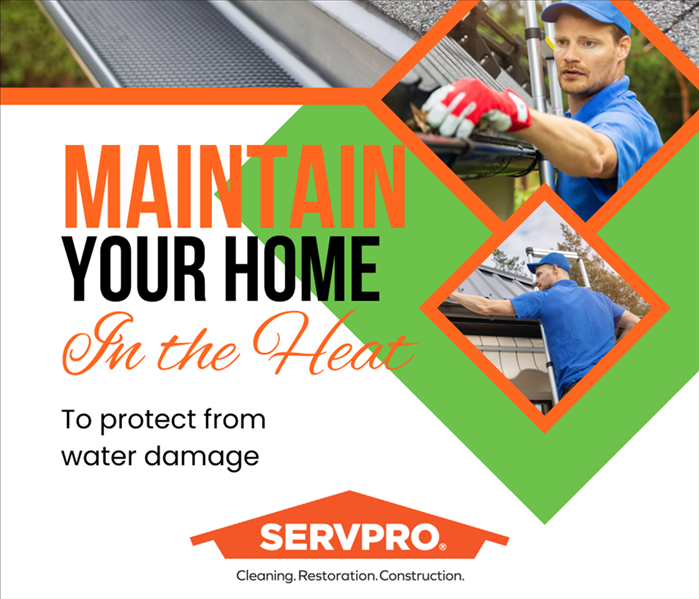How to Maintain Your Home During a Heat Wave to Prevent Water Damage
7/15/2024 (Permalink)
As the summer heat intensifies, homeowners face the challenge of maintaining their homes during prolonged heat waves. While most people focus on staying cool, it’s equally important to consider the impact of extreme heat on your home’s infrastructure, particularly when it comes to preventing water damage. Here are some essential tips to help you safeguard your home during a heat wave and minimize the risk of water damage.
1. Inspect and Maintain Your Air Conditioning System
Why It's Important: During a heat wave, your air conditioning system works overtime to keep your home cool. A poorly maintained system can leak, leading to potential water damage.
Tips:
- Check for Leaks: Inspect the area around your air conditioning unit for any signs of leaks or water accumulation.
- Clean the Condensate Drain: Ensure the condensate drain line is clear of clogs to prevent overflow.
- Replace Filters: Change air filters regularly to maintain optimal performance and prevent blockages.
2. Monitor Humidity Levels
Why It's Important: High humidity levels inside your home can lead to condensation, which can cause water damage over time, especially in areas like basements and attics.
Tips:
- Use a Dehumidifier: Place dehumidifiers in areas prone to high humidity to keep moisture levels in check.
- Ventilate Properly: Ensure proper ventilation in bathrooms, kitchens, and laundry rooms to reduce indoor humidity.
3. Check Your Roof and Gutters
Why It's Important: Heat waves can exacerbate existing issues with your roof and gutters, leading to leaks and water damage during unexpected summer storms.
Tips:
- Inspect for Damage: Look for cracked, missing, or damaged shingles on your roof and repair them promptly.
- Clean Gutters: Remove debris from gutters and downspouts to ensure proper drainage and prevent water from pooling around your foundation.
4. Examine Windows and Doors
Why It's Important: Improperly sealed windows and doors can allow humid air to enter your home, increasing the risk of condensation and water damage.
Tips:
- Seal Gaps: Check for and seal any gaps or cracks around windows and doors with weatherstripping or caulk.
- Install Window Film: Consider using window film to reduce heat gain and protect your home’s interior from UV rays.
5. Inspect Plumbing Systems
Why It's Important: Extreme heat can cause pipes to expand and contract, leading to leaks or bursts, especially in older plumbing systems.
Tips:
- Check for Leaks: Regularly inspect exposed pipes for signs of leaks or corrosion.
- Insulate Pipes: Insulate pipes in unconditioned spaces to protect them from temperature fluctuations.
6. Maintain Landscaping
Why It's Important: Improper landscaping can direct water towards your home’s foundation, increasing the risk of water damage during heavy rains.
Tips:
- Grade Your Yard: Ensure the ground slopes away from your home to direct water runoff away from the foundation.
- Trim Vegetation: Keep trees and shrubs trimmed to prevent roots from interfering with plumbing and drainage systems.
7. Prepare for Storms
Why It's Important: Heat waves often precede summer storms, which can lead to sudden and heavy rainfall, increasing the risk of water damage.
Tips:
- Check Sump Pumps: Ensure your sump pump is in working order and consider installing a battery backup in case of power outages.
- Create an Emergency Kit: Have an emergency kit ready with essentials like flashlights, batteries, and a first aid kit in case of severe weather.
By taking these proactive steps, you can effectively maintain your home during a heat wave and minimize the risk of water damage. If you do encounter water damage, remember that SERVPRO of Lawrence is here to help with professional restoration services to get your home back to its best condition.
For more information on preventing water damage or to schedule a service, contact SERVPRO of Lawrence today. Stay cool and stay safe!






 24/7 Emergency Service
24/7 Emergency Service
